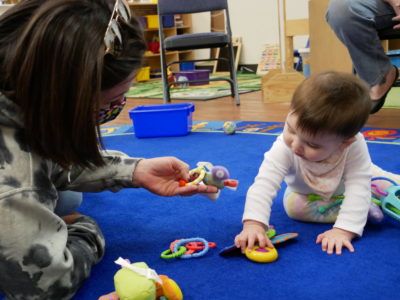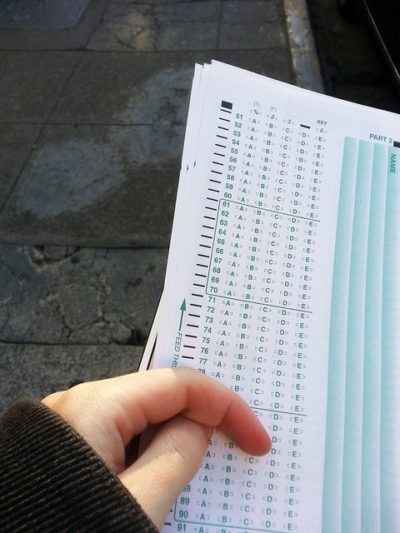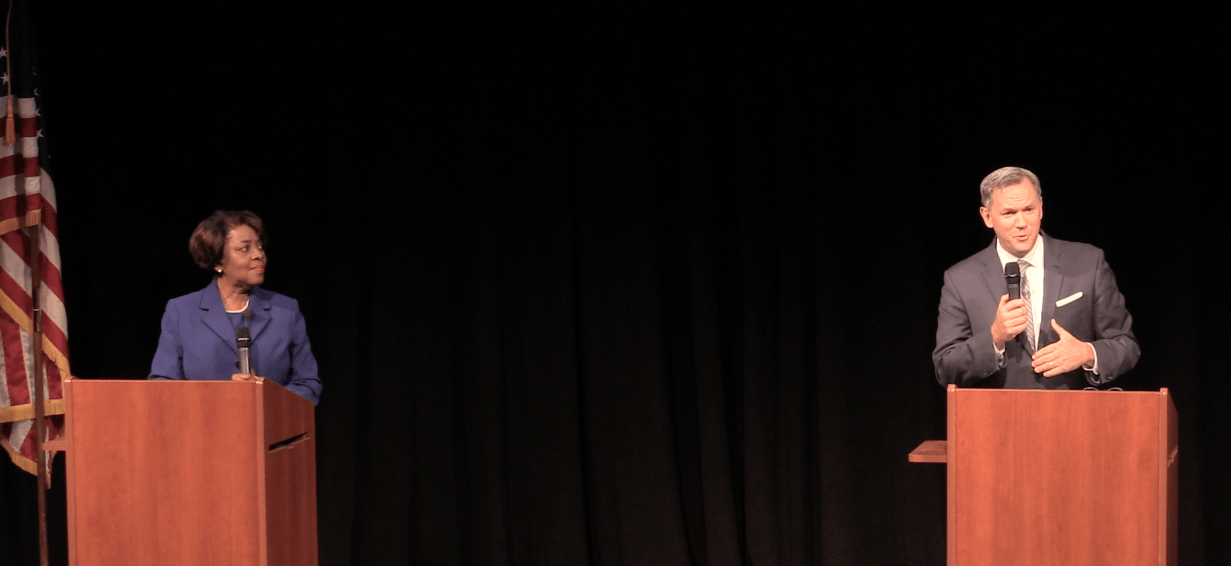Candidates for lieutenant governor were center stage Tuesday night in Barton College’s Kennedy Family Theatre in Wilson. Lieutenant Governor Dan Forest (R) and challenger Linda Coleman (D) answered questions from local newspaper editors on a variety of topics, including a few that were related to education.
The first question that dipped into K-12 education was on opportunity scholarships, also known as vouchers, which help families who can’t afford it send their children to private schools. In June, the 2016-17 budget compromise allocated funds for 2,000 additional opportunity scholarships starting in 2017-18. It’s estimated that the program will serve 6,200 students in 2016-17. The budget also expands the program by $10 million each year for 11 years.
When asked about opportunity scholarships using state funds to send students to religious institutions, Forest defended the program as a chance for all parents, regardless of income, to have as much choice as possible in deciding where their child goes to school. Forest argued that, instead of the government, the parent should choose between several options, including private schools.
“We should demand excellent education for all of our students,” Forest said. “And quite frankly, we really shouldn’t care where it comes from.”
In Coleman’s response, she pushed for more funding for traditional public schools, saying that public education has lost more than $1 billion in the last four years under Republican leadership. She said she now sees schools with shortages in textbooks, teacher assistants, nurses, and school resource officers.
While Forest made a case for opportunity scholarships as a way to lift children out of continually low-performing schools, Coleman argued that greater investment in the public school system would help those failing schools become successful.
“I believe that people should be able to send their children to any school they want, but I don’t think it should be paid for with taxpayer dollars,” Coleman said.
Forest said that K-12 funding has actually increased by $2 billion under Republican leadership, textbook funding has tripled, and the state is spending 13 percent more on K-12 education than ever before. He claimed the previous Democratic leadership cut public education spending by $1.25 billion.
Coleman responded with saying that sacrifices had to be made during the Great Recession, and education funding was one of several government programs that subsequently lost funding. She said Republicans’ education spending has not maintained its weight when adjusting for inflation.
Coleman later added that certain religious schools could have policies that are inconsistent with taxpayers’ values — like discrimination based on sexual orientation.
The candidates were later asked to address the state’s virtual charter schools — which both received a D in the state’s school grading system this year. Both schools — North Carolina Virtual Academy and North Carolina Connections Academy — are part of a four-year pilot program and were approved by the State Board of Education in 2015.
When asked about their low performance, Forest first said that online charters give parents another option that could meet their child’s specific needs, saying many students and families are satisfied. Forest then argued that no low-performing school should be kept open.
“When are we willing to shut down all the D and F schools in North Carolina?” Forest said. “How many years are we going to wait? I don’t think there’s an excuse to be had for any failing school in the state of North Carolina.”
Coleman, on the other hand, asserted that demanding success from four different education initiatives — traditional public schools, charter schools, the opportunity scholarship program, and the achievement school district — is unrealistic. She continued to argue for more attention to traditional public schools, claiming that charter schools haven’t shared their best practices with traditional schools as they were meant to from their conception.
“What all of this is leading to is privatization of our public school system,” Coleman said. “And that goes against the constitution of North Carolina that says every child is guaranteed the right to a basic and sound education.”
Forest later mentioned the state’s digital learning initiative in response to a question about cities and towns funding broadband access in areas of the state where private companies aren’t reaching.
“North Carolina will actually be the first state in the United States of America to have every single classroom connected to high speed broadband and one-to-one devices in the hands of the children,” Forest said. Hooking schools and other government buildings up to high-speed broadband is the first step, Forest said, in making sure rural areas of the state have Internet access.
Coleman argued that funds for broadband access for rural communities should be included in the state’s budget.
After the debate, the candidates took questions where they expounded on their education views.
When asked about testing methods, Coleman said the state Department of Public Instruction is moving in the right direction, citing improved graduation rates. She said the current models should be kept in place until state Superintendent June Atkinson says otherwise.
“We have to trust the people we elect and the people they hire to do the best job that they can,” Coleman said.
Atkinson and the State Board of Education are working on a proof of concept study to reform the state’s testing model. An update was given on the study at the latest State Board meeting. Currently, the study administers three formative assessments throughout the year and would maintain the traditional summative End-of-Grade test at the end of the year.
Forest said that over-testing drains teachers’ ability to be creative and innovative in the classroom. Teaching to content on a test sacrifices teachers’ full potential, he said. To measure students’ success, Forest said some testing is needed.
“Ultimately, you judge it by, ‘Are your students prepared for the world you’re sending them into?'” Forest said.
Recommended reading




